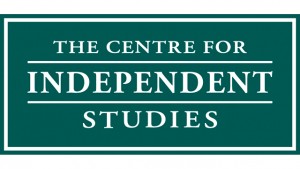Home » Commentary » Media Release » Rudd endorses ‘Stolen Generation’ double standard
· MEDIA RELEASE
 Kevin Rudd’s description of the removal of at-risk indigenous children from their families being “a new stolen generation” relies on an outdated understanding of the relationship between Aboriginal identity and traditional culture, Centre for Independent Studies researcher Dr Jeremy Sammut says.
Kevin Rudd’s description of the removal of at-risk indigenous children from their families being “a new stolen generation” relies on an outdated understanding of the relationship between Aboriginal identity and traditional culture, Centre for Independent Studies researcher Dr Jeremy Sammut says.
“During the past decade, the proportion of indigenous children who have needed to be removed from their families has increased from 3.2 per cent to 6.5 per cent. But child removals today are not being driven by racist attitudes or a desire to ‘breed out the colour’ as they were in the past. They are being removed to protect them from ongoing abuse and neglect,” Dr Sammut says.
“More than 15,000 indigenous children live in care, reflecting the worsening dysfunction in Aboriginal communities, particularly in rural and remote areas.
“Tragically, too many indigenous parents — despite the billions spent annually on services and assistance for “homeland” communities — are incapable of keeping their children safe and cannot meet the most basic physical and developmental needs of their children.
“The notion endorsed by Mr Rudd that culture should take precedence over child welfare is alarming because it is selectively applied only to the most disadvantaged indigenous Australians living in rural and remote areas.
The modern definition of Aboriginality bases ethnic identity on self-identification, family history and descent from an Aboriginal ancestor, Dr Sammut says.
“Modern Aboriginal identity also reflects the social status of the 80% of all Indigenous Australians who reside in major urban areas,” he says.
“These urban Indigenous Australians are largely thoroughly integrated into mainstream society to the point that, in relation to education, employment, housing and other social welfare indicators, they are similar to their non-Indigenous peers — without destroying their identity as Indigenous based on pride and acknowledgment of one’s background.
“This indicates that modern Aboriginal identity is no longer based on being culturally Aboriginal in the traditional sense: having continuous contact with Aboriginal culture and traditional lands.
“But no matter how distant the connection with culture, Aboriginal identity is recognised by Indigenous and non-Indigenous communities.
“But we are told that when it comes to the welfare of the most vulnerable indigenous children, culture must come first for the sake of their identity.
“Removing these children, and potentially giving them a great chance to access the benefits of mainstream society, is falsely portrayed as somehow marking a return to the assimilationist era of the Stolen Generations.
“The double standard that Rudd has endorsed is deeply inequitable and discriminatory – and will help keep open the gap in Indigenous disadvantage by trapping ‘lost generations’ of children for life in dysfunctional communities.
Dr Jeremy Sammut is a senior research fellow at the Centre for Independent Studies and author of The Kinship Conundrum: The Impact of Aboriginal Self-Determination on Indigenous Child Protection and The Madness of Australian Child Protection.
Rudd endorses ‘Stolen Generation’ double standard